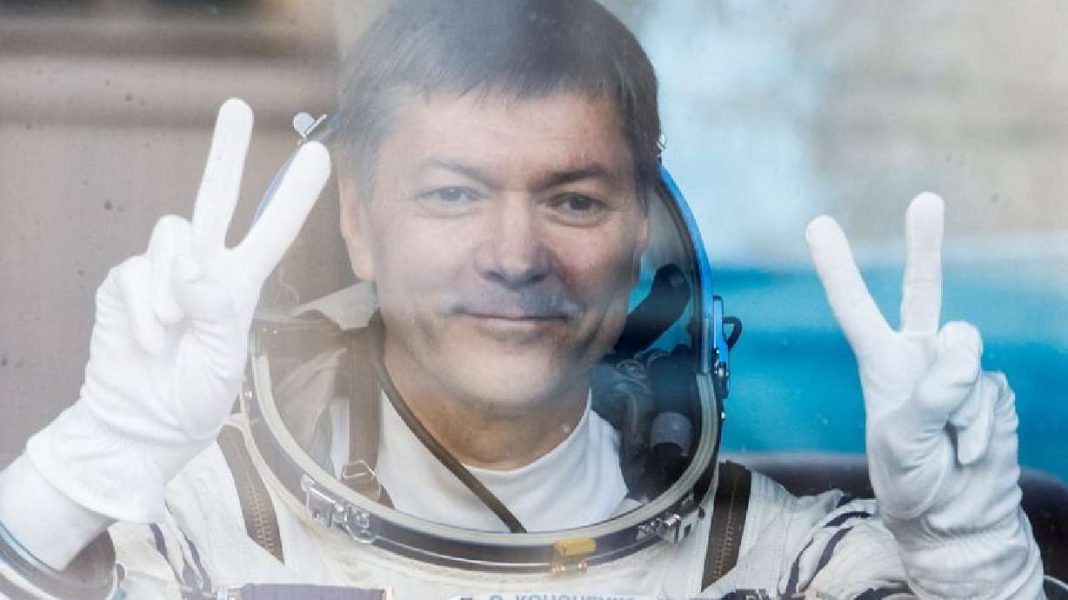From the heart of MOSCOW — A new world record has been set by Russian cosmonaut Oleg Kononenko for the longest duration spent in space, surpassing the previous record held by his fellow countryman Gennady Padalka, who spent over 878 days in orbit, according to Russia’s space corporation.
At precisely 0830 GMT, Kononenko made history, as confirmed by Roscosmos. It is anticipated that Kononenko will reach a total of 1,000 days in space by June 5, and by the end of September, he will have spent an impressive 1,110 days in orbit.
In an interview with TASS from the International Space Station, orbiting approximately 263 miles from Earth, Kononenko said, “I venture into space to pursue my passion, not to break records.”
He added, “While I take pride in all my accomplishments, I am prouder still that the record for the longest human stay in space is held by a Russian cosmonaut.”
The 59-year-old Kononenko has now surpassed Padalka, who had accumulated a total of 878 days, 11 hours, 29 minutes, and 48 seconds in space, as stated by Roscosmos.
The Soviet Union startled the West during the initial stages of the space race by being the first to launch a satellite into Earth’s orbit — Sputnik 1, in 1957. Subsequently, Soviet cosmonaut Yuri Gagarin became the first man to journey into space in 1961.
However, following the dissolution of the Soviet Union in 1991, Russia’s space program faced significant funding deficits and corruption issues.
Under President Vladimir Putin’s administration, officials have repeatedly pledged to revitalize Russia’s space programs, although significant challenges persist, as per officials and space analysts.
Life Beyond Earth
Kononenko revealed that he maintains a regular workout routine to combat the physical effects of the “insidious” weightlessness in space. However, it is upon his return to Earth that he realizes the extent of life he has missed.
He stated, “I do not feel deprived or isolated.”
He further added, “It is only when I return home that I realize that my children have been growing up without their father for hundreds of days. This lost time is irreplaceable.”
Kononenko mentioned that modern technology allows cosmonauts to use video calls and messaging to stay connected with their families. However, preparing for each new space flight has become increasingly challenging due to technological advancements.
“The profession of a cosmonaut is becoming more complex. The systems and experiments are becoming more intricate. I must emphasize, the preparation has not become easier,” he said.
Since childhood, Kononenko had dreamed of venturing into space. He enrolled in an engineering institute and underwent cosmonaut training. His first space flight was in 2008.
His most recent journey to the ISS was launched last year on a Soyuz MS-24.
The ISS remains one of the few international projects where the United States and Russia continue to collaborate closely. In December, Roscosmos announced that a cross-flight program with NASA to the ISS had been extended until 2025.
However, relations between the two countries in other areas have deteriorated since Russia’s invasion of Ukraine nearly two years ago. In response, Washington has supplied arms to Kyiv and imposed successive rounds of sanctions on Moscow.




This is an incredible achievement for the Russian cosmonaut and a testament to the advancements in space exploration.
Agree Amazing dedication and resilience! A remarkable milestone for human exploration.